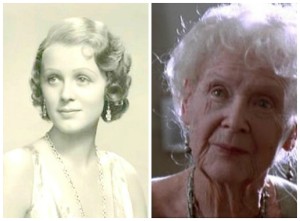 Meet three women born decades apart in
Meet three women born decades apart in
Cynthia Ruchti’s
women’s fiction novel
When the Morning Glory Blooms
Abingdon Press
The Story
Becky rocks a baby that rocked her world.
Sixty years earlier, with her fiancé Drew in the middle of the Korean Conflict, Ivy throws herself into her work at a nursing home to keep her sanity and provide for the child Drew doesn’t know is coming. Ivy cares for Anna, an elderly patient who taxes Ivy’s listening ear until the day she suspects Anna’s tall tales are not the ramblings of dementia. They’re fragments of Anna’s disjointed memories of a remarkable life. Finding a faint thread of hope she can’t resist tugging, Ivy records Anna’s memoir, scribbling furiously after hours to keep up with the woman’s emotion-packed, grace-hemmed stories.
Is Ivy’s answer buried in Anna’s past? Becky, Ivy, Anna–three women fight a tangled vine of deception in search of the blossoming simplicity of truth.
Enjoy meeting Anna, Ivy, and Becky
Brief physical description
There are three clear protagonists in When the Morning Glory Blooms: Anna (1890s), Ivy (1950s), and Becky (present day).
Anna shows up in both the 1890s as a young woman, and in the 1950s story as an 85 year old woman near the end of her life. In the 1890s, her slightness,  wistful look, reserved nature, mass of brown hair usually loosely braided and pinned up, and pale eyes make her seem vulnerable, but she is oak-strong. Life has etched fine lines on the surface of her heart, visible to no one but God. By the 1950s, her hair is wispy silver, the lines and scars show on the outside. She’s precocious, more outgoing than her younger days. Her shoulders are bony, skin translucent. But her irrepressible smile and indefatigable faith keep her countenance bright.
wistful look, reserved nature, mass of brown hair usually loosely braided and pinned up, and pale eyes make her seem vulnerable, but she is oak-strong. Life has etched fine lines on the surface of her heart, visible to no one but God. By the 1950s, her hair is wispy silver, the lines and scars show on the outside. She’s precocious, more outgoing than her younger days. Her shoulders are bony, skin translucent. But her irrepressible smile and indefatigable faith keep her countenance bright.
Ivy is 22 in 1951. She is more beautiful than she knows, but her porcelain face is marred by a persistent sadness. Her hair is maple with a hint of red in it, shoulder length and wavy. Her hazel eyes work hard not to give away what she’s feeling. She doesn’t consider herself distinctive-looking. Her thin frame is filling out with the baby that grows inside her.
Becky is 40-years-old, with caramel straight hair just long enough to pull into a ponytail on busy days. She has a pug nose dotted with freckles that keep her young-looking despite being a reluctant grandma. She’s perpetually a few pounds heavier than she wants to be, enough for them to be annoying.
Strengths and weaknesses
Anna’s strength is her fierce determination against miserable odds. She is willing to do whatever it takes to follow what she believes is her calling. She cares deeply for the women she serves—an elegant strength that also is a weakness. She’s in a constant battle to rise above heartbreak in order to fulfill her calling.  She’s dripping with unconditional love for others, but is surprised when the same is shown to her.
She’s dripping with unconditional love for others, but is surprised when the same is shown to her.
Ivy’s strength is the kindness she shows though little has been shown her to this point in her life. She clings to the elusive edges of a brittle dream. Her weakness is her inability to comprehend that anyone could love her after what she’s done, which handicaps her ability to receive warmth when it’s offered and keeps her from fully embracing a sustaining faith.
Becky’s strength is her ability to milk humor from humorless situations and to rebound from disappointment. Her weakness is her constant confusion about where the line is drawn between helping and enabling.
Quirk (if any)
In her older years, Anna’s rambling stories, told in bits and pieces, sound like the words of a woman who’s lost touch with reality, but with a charming humor to them.
Ivy is too serious for a quirk, at least at the beginning of her story.
Becky has a delightfully quirky relationship with her husband. They’re deeply in love and face life’s challenges united, but not without a shared sense of humor that often glues them back together when the pieces start to shatter.
Your inspiration for the character
The characters I write all have bits of who I am, and bits of who I’d long to be, mixed with bits of character flaws I wrestle with or watch others wrestle.
Anna was inspired by all the women I’ve known who have not backed down when support for an inspired idea is slim.
Ivy represents the women I’ve known who haven’t had a chance not to live broken, those who have yet to discover the possibility of joy.
Becky is a model for the woman I hope I am at my core. Even when buffeted, she’s resilient and returns to what she knows to be true. She’s committed to her  family, even when they mess up or life messes with them. She represents women everywhere who face the difficult with courage and tenacity and a smidge of sweet humor to ease the strain of her pain.
family, even when they mess up or life messes with them. She represents women everywhere who face the difficult with courage and tenacity and a smidge of sweet humor to ease the strain of her pain.
Background to the story
2012—The baby in Becky Trundle’s arms isn’t her own. He belongs to Becky’s 17-year-old daughter, Lauren, who gave birth to him but whose mothering instincts have yet to kick in. As she sacrifices her job and bears the discomfort of church friends and neighbors who after years of dealing with unwed moms still aren’t sure how to handle themselves, Becky wonders if Lauren will ever step into the role of Mom.
1951—Ivy Carrington is pregnant and unmarried in an age when girls “in trouble” get shipped off to a distant relative for a few months. But with her boyfriend serving overseas in the Korean Conflict, unaware of the baby, and her dad threatening to evict her as soon as she starts to show, Ivy’s level of desperation escalates. She befriends an eccentric nursing home patient, Anna, whose wild stories hold a spark of hope for Ivy.
1890s—Anna Morgan’s mother served as midwife for many babies born in the settling Midwest after the Civil War, with Anna attending, even as a child. After her mother’s ultimate sacrifice for a needy family, Anna determines to devote her life and the home she inherits from the aunt who takes her in to provide a safe haven—The Morning Glory Home for Unwed Mothers—and a connecting point for hope.
The women are linked by more than their longing for a glimmer of hope. The “how” unfolds through the interconnected stories like a morning glory blossom uncurls to face the dawn.
Thanks Cynthia!
Relz Reviewz Extras
Review of They Almost Always Come Home
Character spotlight on Libby Holden
Visit Cynthia’s website and blog
Buy When the Morning Glory Blooms at Amazon or Koorong











April 21, 2013 at 4:10 am
Thank you, Rel! It is always a joy to stop for a visit here. Thank you for the opportunity. Many blessings on your efforts to support reading, books, and authors!
April 25, 2013 at 2:54 pm
Cynthia Ruchti » You are a sweetie, Cynthia. You are most welcome!
April 21, 2013 at 11:50 pm
I am hearing rave reviews about this book — and am not a bit surprised! Cynthia is such a gifted writer.
August 20, 2014 at 9:48 am
This information is priceless. Where can I find out
more?
Here is my page – Injury Compensation Lawyers